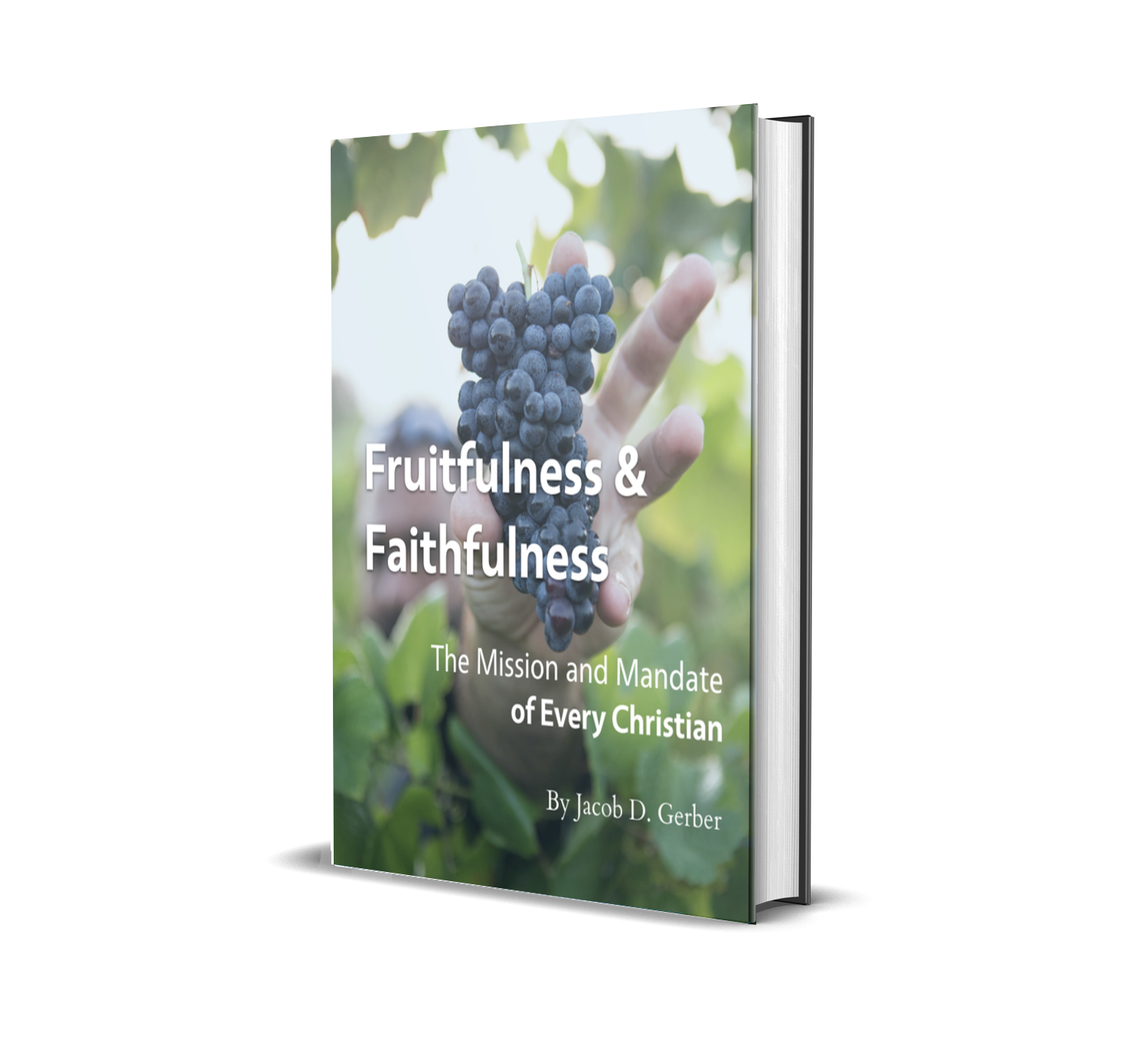Cultivating and Keeping: Human Productivity in Creation
Our productivity does not stand on its own. Human productivity has its origin in God’s productivity. God forms and fills creation, and then we cultivate and keep that creation.
The key text in the creation story to define human productivity is Genesis 2:15: “And the LORD God took the man and put him in the garden of Eden to work it and keep it.” In this article, we will explore several important implications from Genesis 2:15.
The Context for Human Productivity: Rest
Before we explore the what of human productivity (cultivating and keeping), we must notice the how. The context for human productivity is rest.
The word for “put” (“And the LORD God took the man and put him in the garden of Eden…”) in Genesis 2:15 is a different word from the word “put” in Genesis 2:8: “And the LORD God planted a garden in Eden, in the east, and there he put the man….”
The word in Genesis 2:8 is the common word for “put” (585 uses in the Old Testament). The word in Genesis 2:15, though, is rarer (75 uses) since it has a very specific nuance: causing something to come to rest (Ross, Creation and Blessing, 124). We might better translate the verse like this: “And the LORD God took the man and caused him to rest in the garden of Eden, to work it and keep it.”
Human productivity begins from rest, not exertion. We produce from God’s productivity, for only God can create out of nothing. This idea forms the backdrop to the ideas of cultivating and keeping, which we will discuss next.
Human Productivity: Cultivating
God put Adam (restfully) in the garden of Eden “to work it and keep it.” The word “work” (‘ābad) can mean “work,” “cultivate,” or “serve.” Significantly, this word can also mean “worship,” if the one being “served” is God.
By “cultivate,” this word probably describes the work of maintaining and expanding the borders of the garden of Eden. John Walton writes:
It is necessary, however, to move beyond the “serving and preserving” role. If people were going to fill the earth, we must conclude that they were not intended to stay in the garden in a static situation. Yet moving out of the garden would appear a hardship since the land outside the garden was not as hospitable as that inside the garden (otherwise the garden would not be distinguishable). Perhaps, then, we should surmise that people were gradually supposed to extend the garden as they went about subduing and ruling. (Walton, Genesis, 186.)
Through cultivating the garden, Adam would extend God’s work of filling creation. Bit by bit, the garden would extend farther and farther across the face of the earth. By the new fruit growing in the expanding garden, Adam and Eve would support the children (God’s image-bearers) they would bear. In this way, the glory of God would eventually come to fill the whole earth.
Today, our work of cultivating includes any kind of work of agriculture, raising children, manufacturing, construction, cooking, art, or anything else that produces a product. By cultivating, we build on God’s work of filling to support each new generation of image-bearers born as the descendants of Adam and Eve. As the Lutheran tradition puts it, we become “God’s fingers” to fill what remains empty in God’s world (Keller, Every Good Endeavor, 4).
Human Productivity: Keeping
If Adam would extend God’s work of filling through cultivating the garden, so also Adam would preserve God’s work of forming (organizing) through keeping: “to work it and keep it.” The word “keep” (šāmar) can mean “keep,” “guard,” or “obey.” The essential idea is that God commissioned Adam to preserve the good boundaries that God had established in creation.
This is where Adam failed in his responsibilities. When a serpent overstepped God’s boundaries by questioning the word of God, Adam did not exercise the dominion God had given him over the animal kingdom (Gen. 1:28). He should have judged and cast out the serpent from the garden in order to keep God’s order, but instead, he listened to the serpent’s word instead of God’s.
Because Adam failed to keep God’s good boundaries, God cursed the ground to limit the effectiveness of our work of cultivation (Gen. 3:17–19). Additionally, chaos crept back into creation, so that at one point even the waters from the heavens and the waters from the seas soon covered over the dry land as human wickedness increasingly transgressed God’s good boundaries (Gen. 6–7).
Today, our work of keeping still seeks to preserve God’s good forming of his creation. Additionally, we are called to some extent to do the hard work of re-forming areas where chaos has brought destruction and devastation. This includes writing and enforcing laws, educating people (especially our children), managing our homes, and creating systems and structures for human life to flourish in obedience to God and his word.
These efforts can never bring about lasting transformation in this broken world. Nevertheless, God calls us to uphold justice and order as well as we can until Jesus returns to bring about true transformation.
A high emphasis on the work of keeping is perhaps a primary insight of the Reformed tradition: “Work not only cares for creation, but also directs and structures it. In this Reformed view, the purpose of work is to create a culture that honors God and enables people to thrive” (Keller, Every Good Endeavor, 4).
Cultivating and Keeping: Priestly Work
Importantly, this pair of words—working/cultivating (‘ābad) and keeping (šāmar)—show up later in the Bible to describe the work of the priests and the Levites. G. K. Beale writes this:
The two Hebrew words for ‘cultivate and keep’ are usually translated ‘serve and guard [or keep]’ elsewhere in the Old Testament. It is true that the Hebrew word usually translated ‘cultivate’ can refer to an agricultural task when used by itself (e.g., 2:5; 3:23). When, however, these two words (verbal [‘ābad and šāmar] and nominal forms) occur together in the Old Testament (within an approximately 15-word range), they refer either to Israelites ‘serving’ God and ‘guarding [keeping]’ God’s word (approximately 10 times) or to priests who ‘keep’ the service’ (or ‘charge’) of the tabernacle (see Num. 3:7–8; 8:25–26; 18:5–6; 1 Chr. 23:32; Ezek. 44:14). (Beale, The Temple and the Church’s Mission, 66–67.)
The garden of Eden was the first temple where God dwelt with his people. So, the work that God gave Adam was the priestly work of serving/cultivating and keeping the temple.
This does not mean that all of our work is priestly or holy like Adam’s work in the garden. Our priest is Jesus Christ, and our temple is in heaven (Heb. 8:1–2). Therefore, the only truly priestly work is the finished work of Jesus Christ mediated through the Holy Spirit.
So, whether we are pastors, evangelists, or missionaries, or whether we are butchers, bakers, or candlestick-makers, none of our work is holy or priestly. At best, we can only bear witness to Christ’s priestly work through our common (not holy) vocations in this world (Littlejohn, The Two Kingdoms, 48–50).
Yes, we must continue the work of cultivating and keeping God’s creation in a common way, but all of our work is temporal and transient. If we want to pursue genuine, lasting, spiritual productivity, we will only find it through Jesus alone: “I am the vine; you are the branches. Whoever abides in me and I in him, he it is that bears much fruit, for apart from me you can do nothing” (John 15:5).
We will develop this idea about true, spiritual productivity in the next article: Fruitfulness: A Biblical Theology of Productivity.
FREE eBook: Fruitfulness and Faithfulness: God’s Mission and Mandate of Every Christian
Grow in God’s Plan for Your Fruitfulness and Faithfulness

Invest Your Life Well
Discover God’s breathtaking vision for the fruitfulness of his people.
Learn how to live fruitfully and faithfully in the kingdom of Jesus.
Download the free eBook now.
Get the eBook
Bonus: You’ll also get a discipleship assessment tool to evaluate areas for you to grow in fruitfulness and faithfulness.




